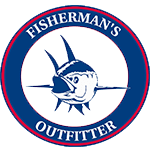Fishing Gear Reviews
February 13, 2014Hello world!
February 27, 2014Bass fishing is one of the most popular types of fishing in New England. Ask anyone you know who likes to fish, and chances are they will tell you their own stories and tips. The truth is that though there are some basics to remember when learning how to fish, so much of it is about personal style, research, and knowledge of the location and patterns of the area and fish. Although each fisherman can come up with their own unique routine in order to be successful, there are a few things that will make for an easier time when first starting out, or even changing up your routine.
So next time you’re thinking about heading out to fish for bass, remember these two simple pointers to keep you on the right path to fishing success.
Know your environment
So much about having a good track record as a fisherman comes with knowing about the bodies of water you fish in. The simple fact is if you don’t know where the fish are, you can’t catch them. Understanding the lay of the land beyond what your fish finder tells you can be crucial to your overall success because if you’ve done your homework, you’ll know where to start off in the water before the fish finder brings you there. Pay close attention to the landscape of the water. Does it have fallen logs? Lots of greenage? Where are the areas where the water gets the shallowest and the deepest? What is the water clarity like? Keeping track of these simple facts can help you find the schools more quickly, and save you time and aggravation. If it’s your first time on particular waters, doing a scout is always a good idea too.
Patience is a virtue … and it makes for better fishing
Ever wonder why you’re only pulling up small fish? Why that huge fish you’ve heard tales of just never seems to be around when you are? Chances are that legendary trophy-sized fish is that way for a reason: it’s clever. The big guys don’t get big by nibbling at everything that comes their way, so take heart. Make sure your gear is on point with your location and desired catch, understand the environment, and start developing a system. Rest assured, with some patience and a method that you think works for you, you’ll start seeing results soon enough.
